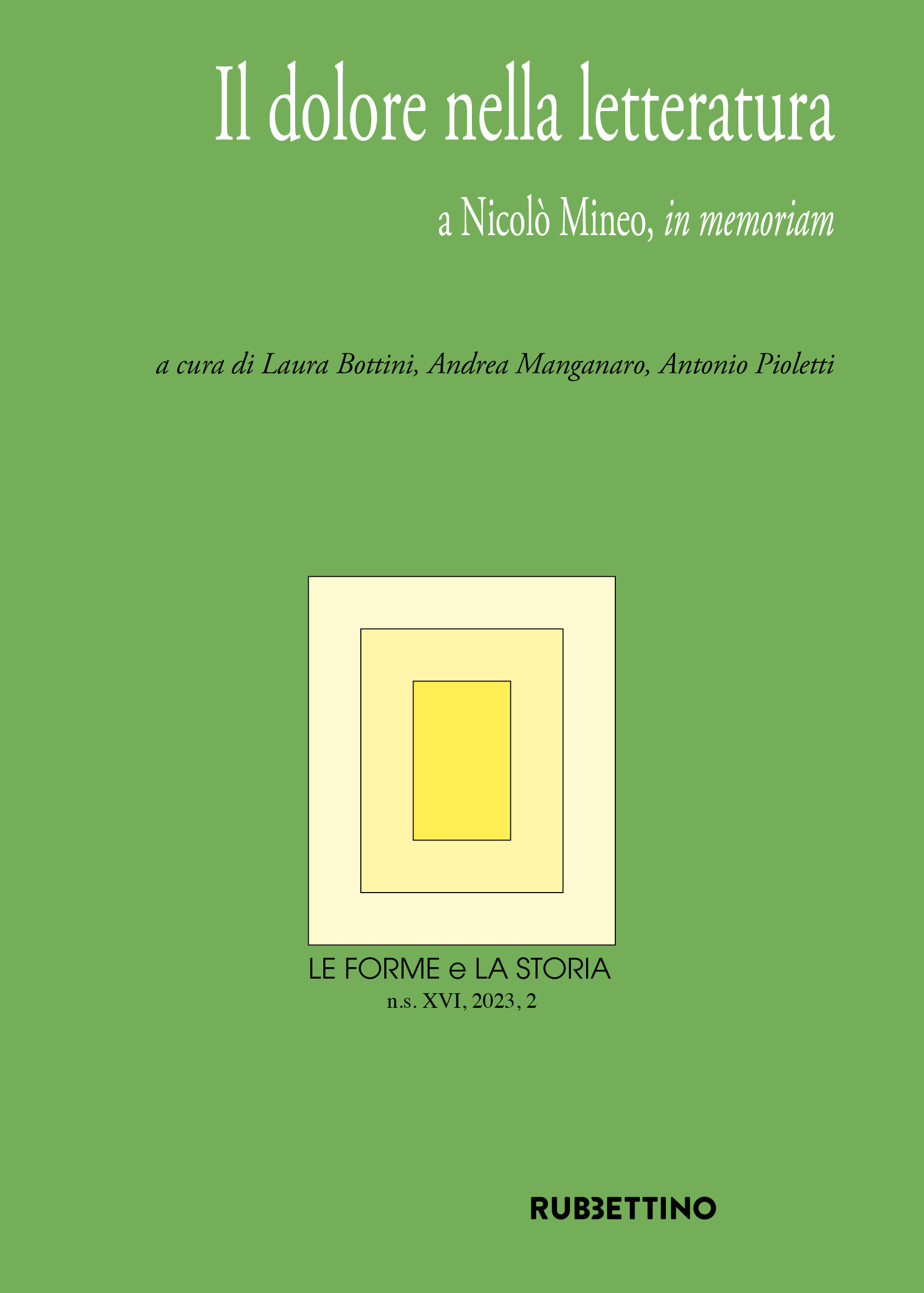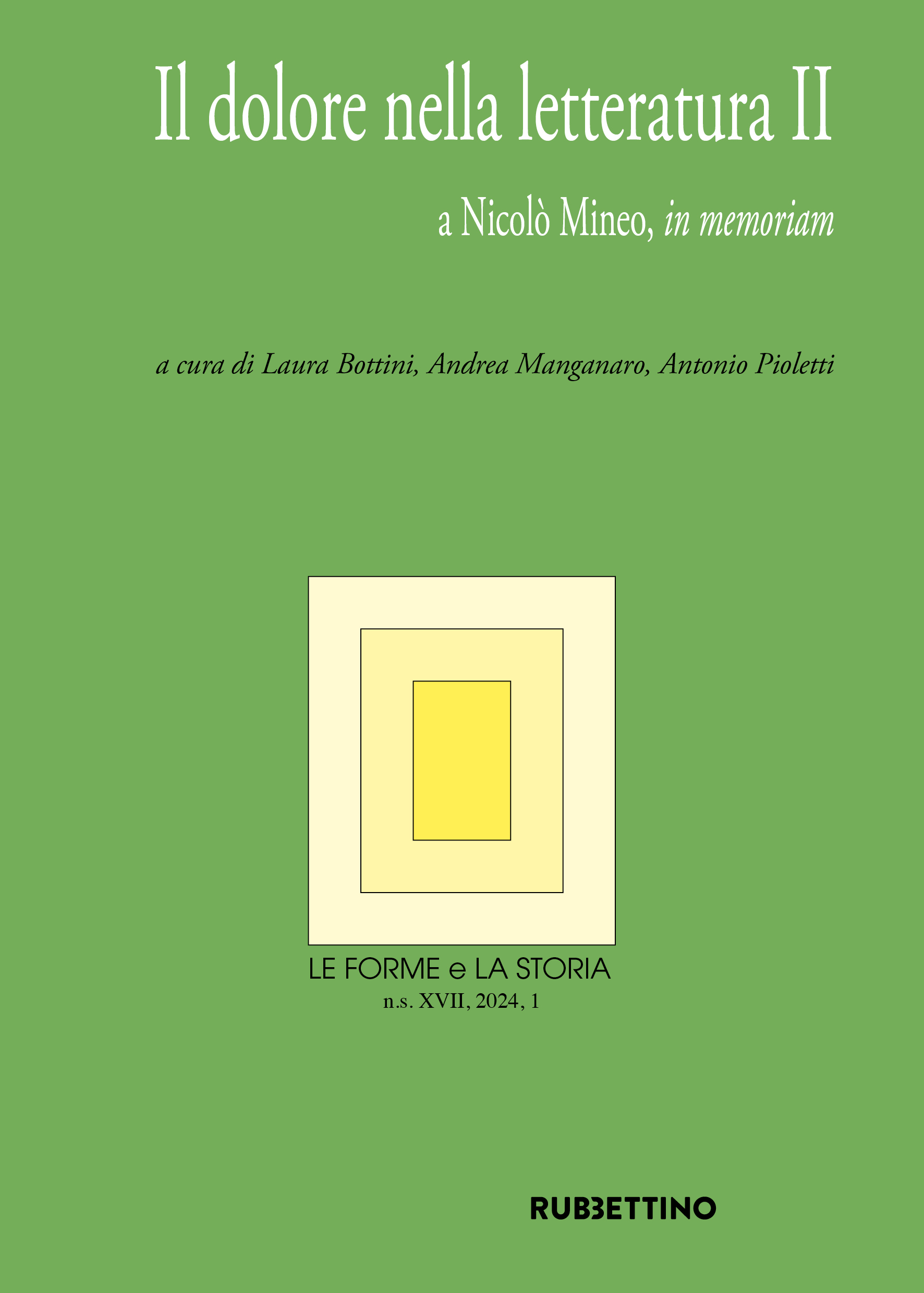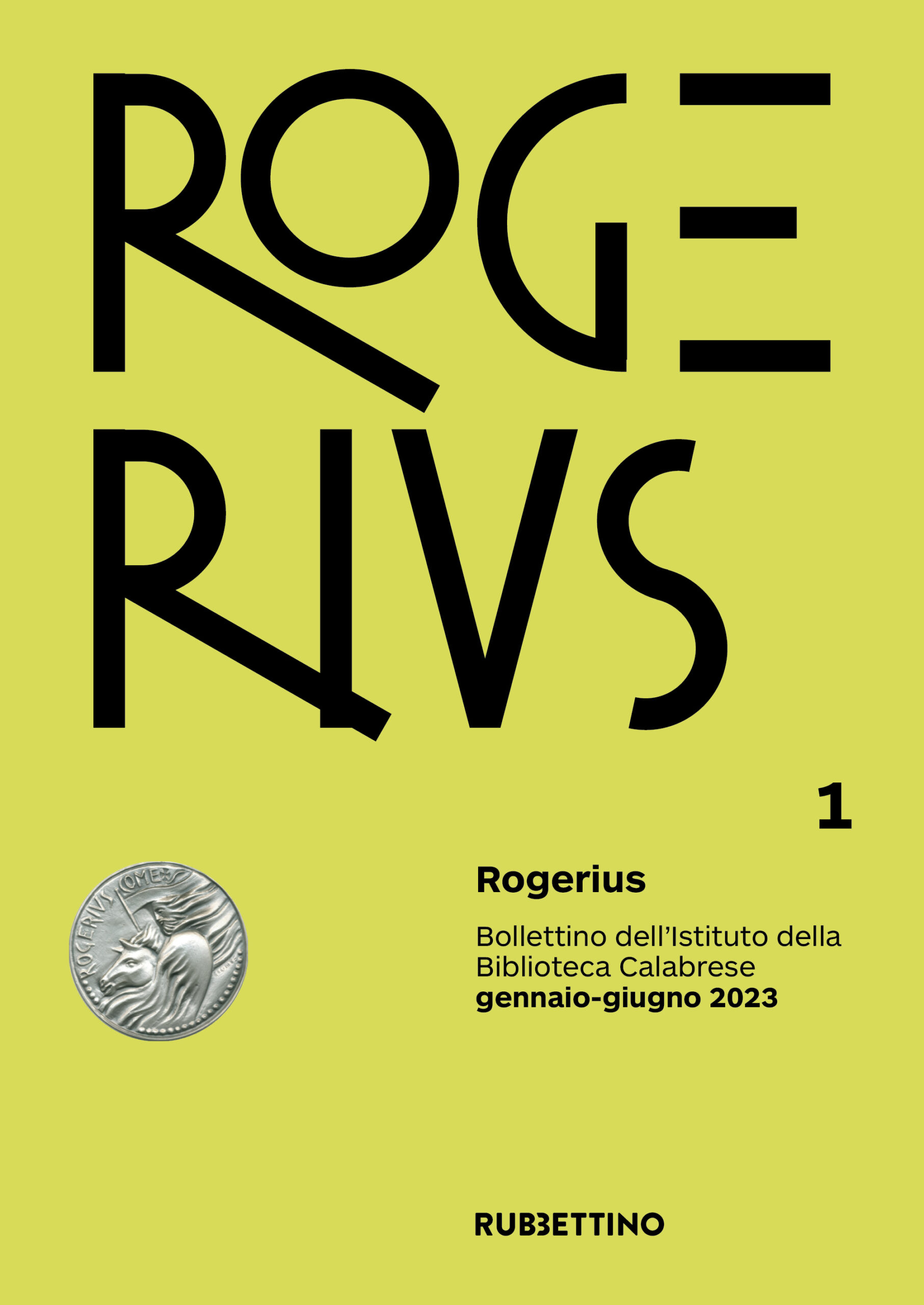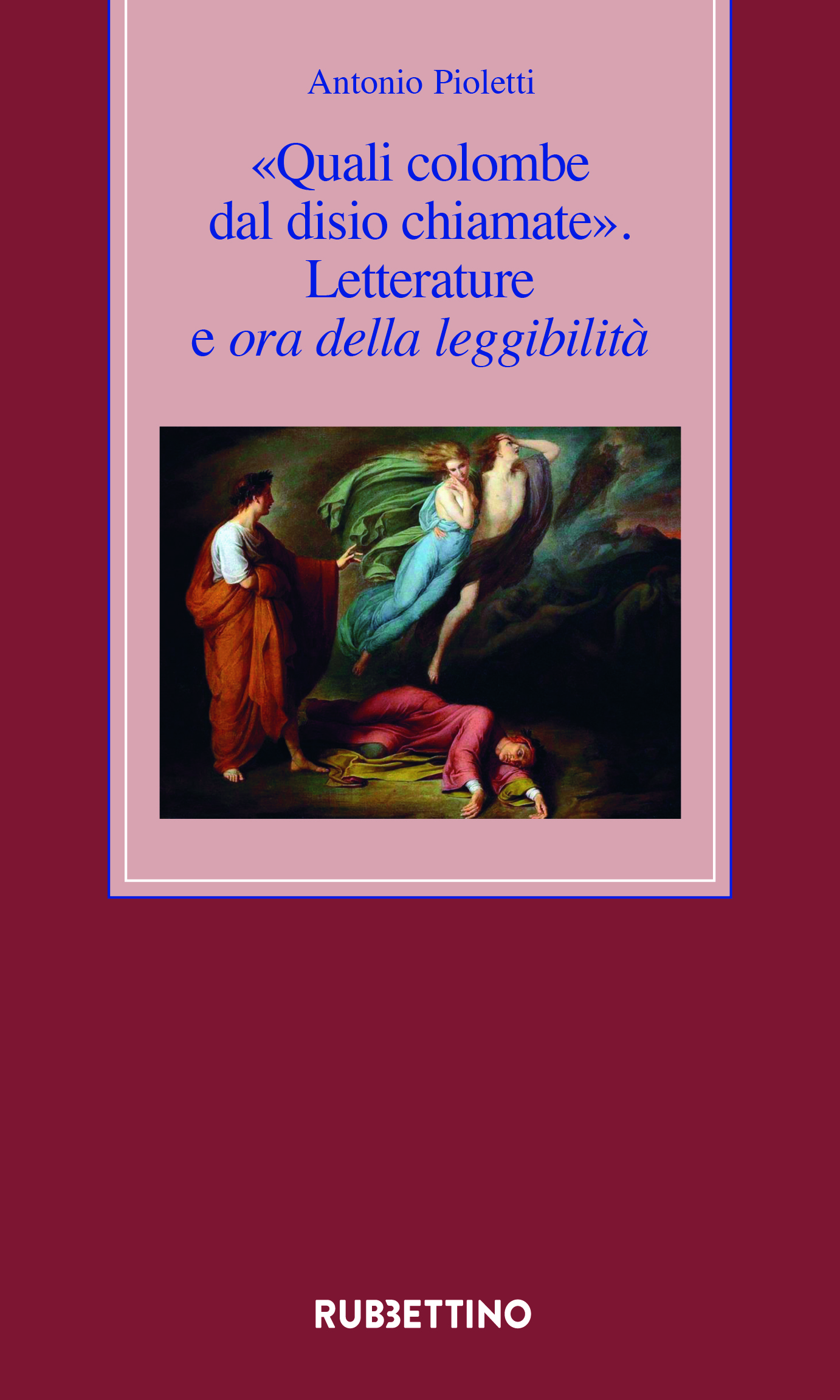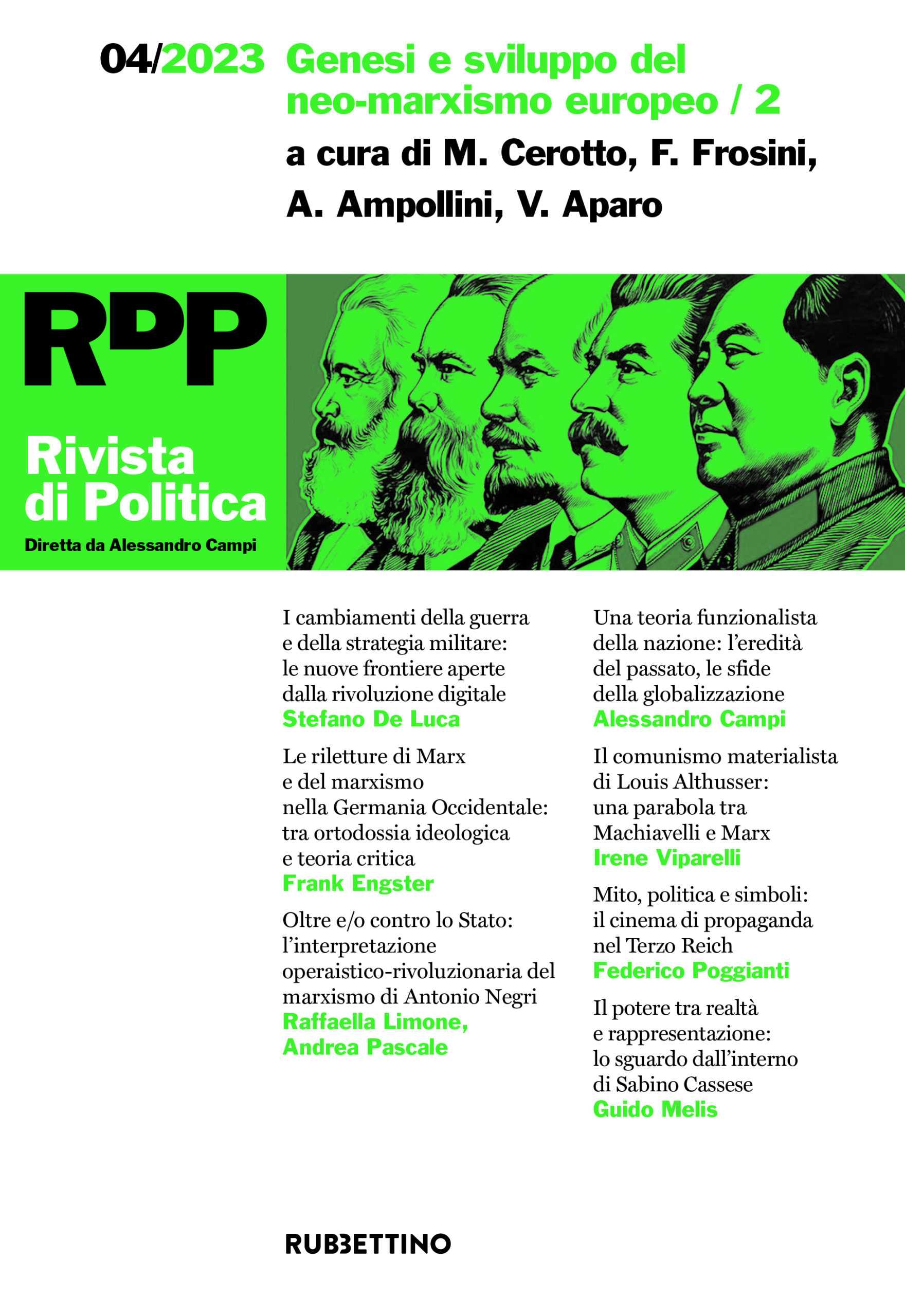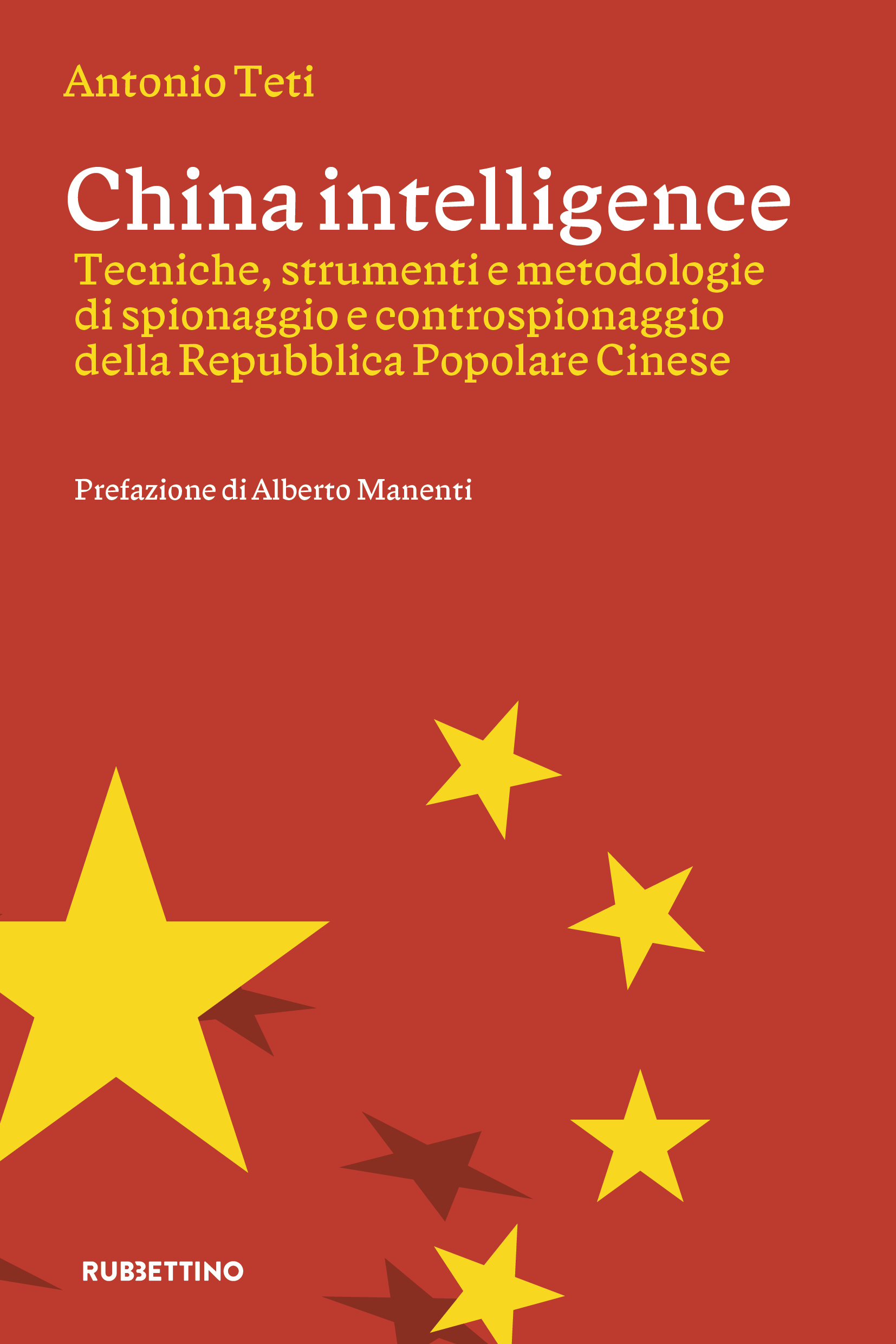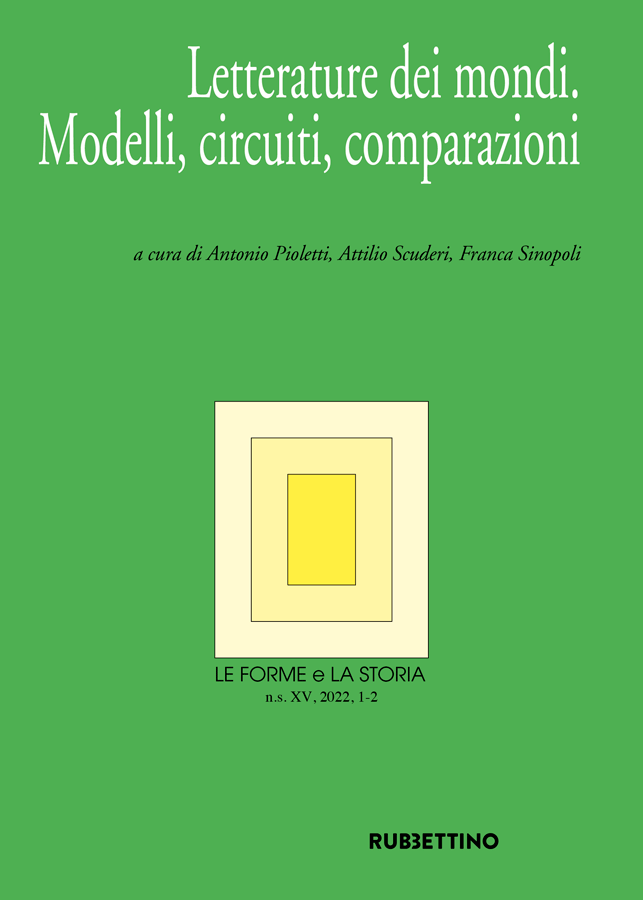Le forme e la storia ns XVI, 2023, 2
Il dolore nella letteratura. A Nicolò Mineo in memoriam
a cura di Laura Bottini, Andrea Manganaro, Antonio Pioletti
Cartaceo
€14,25 €15,00
Camillo Neri
Il dolore nella letteratura greca. Qualche carotaggio (non solo tragico)
Breve e selettiva rassegna su testi e contesti, lessico e accezioni del dolore greco dai poemi omerici all’età alessandrina. Ne emerge, tra l’altro, che
Camillo Neri
Il dolore nella letteratura greca. Qualche carotaggio (non solo tragico)
Breve e selettiva rassegna su testi e contesti, lessico e accezioni del dolore greco dai poemi omerici all’età alessandrina. Ne emerge, tra l’altro, che il dolore è in fondo un potentissimo canale di comunicazione. Per com-prendere, per com-prendersi.
Brief and selective survey of texts and contexts, lexicon and meanings of Greek pain from the Homeric poems to the Alexandrian age. Among other things, it emerges that pain is basically a very powerful communication channel. To understand (and support) others and oneself.
Arianna Punzi
«S’il ot dolor, nus nel demant»: il tema del dolore nel Roman de Troie di Benoît de Sainte Maure
Il contributo si concentra sulla centralità del tema del dolore nel Roman de Troie di Benoît de Sainte Maure, tema cruciale in un romanzo che ambisce a rappresentare come la guerra e la passione amorosa entrino con il loro carico emotivo nella vita dei personaggi.
The article discusses the treatment of grief in the Roman de Troie by Benoît de Sainte Maure, a novel which weaves together love and death in a single fabric. Following the occurrences of the term “dolor”, in its varying uses and significance, the author analyses the ways in which the emotions and sentiments of the characters are dramatized and revealed in the text.
Enrico Fenzi
Dante e il dolore: qualche nota
Nell’Inferno i dannati soffrono due diversi tipi di dolore. Il primo è quello procurato loro dalle pene corporali alle quali sono sottoposti; il secondo è il dolore d’animo dovuto all’ossessiva, implacabile memoria della loro esperienza terrena. Questo dolore è più forte del primo e caratterizza ogni singola anima quale portatrice di una vicenda particolare, storica o personale che sia, e proprio attraverso di esso Dante partecipa e giudica la storia del suo tempo, e rappresenta dal vivo l’umanità dei suoi personaggi.
In Hell, the damned suffer two different kinds of pain. The first is the physical pain due to corporal punishment. The second is the emotional pain due to the obsessive memory of the earthly experience. This second pain is stronger than the first and characterizes each soul as a carrier of a particular reality. Through this anguish, Dante judges the history of his time and depicts the human essence of his characters.
Simone Magherini
Il «Controdolore» di Palazzeschi
La «lente» ironica di Palazzeschi è un formidabile strumento conoscitivo. Nel manifesto futurista del Controdolore il rovesciamento parodico del «dolore» in «gioia» significa certamente rinunciare alla «serietà» delle cose gravi, all’unicità di un codice di valori esistenziali e alla retorica del sublime, ma significa soprattutto cancellare con la leggerezza di una «sonora risata» la pretesa demiurgica dell’io lirico e delle sue istanze creatrici. In appendice al saggio si pubblicano in edizione sinottica, per una visione in parallelo delle più significative varianti, l’unico autografo superstite e la redazione a stampa su «Lacerba».
The ironic “lente” of Palazzeschi is a remarkable probe. In his futurist manifesto Controdolore, the parodic reversal of “dolore” turning into “gioia” is certainly a call to let go of the “serietà” of sombre matters, to embrace an existential code of ethics and sublime pomp, but it particularly means to brush away with a “sonora risata” the demiurgic claims of the lyric self with its bursts of creativity. In an appendix to this essay is the only extant autograph and its publication in ‘Lacerba’ in a synoptic edition, providing a parallel view of its most significant variants.
Annafrancesca Naccarato
Sur «le mal des fantômes» dans la poésie de Benjamin Fondane
Cet essai porte sur l’étude des métaphores aquatiques disséminées dans le poème Le Mal des fantômes de Benjamin Fondane, qui constitue la deuxième partie du recueil homonyme comprenant aussi Ulysse, Titanic, L’Exode et Au temps du poème. L’analyse se propose en particulier de montrer jusqu’à quel point ces métaphores participent à la création de ce «non lieu» aux formes mouvantes et indéfinies qui, paradoxalement, fait surgir la voix «irrésignée» d’un poète dont la parole renouvelée se transforme, de manière prométhéenne, en une affirmation existentielle.
This essay focuses on the aquatic metaphors in Benjamin Fondane’s Le Mal des fantômes, which forms the second part of his homonymous collection that also includes Ulysse, Titanic, L’Exode and Au temps du poème. In particular, the analysis aims to show the extent to which they contribute to the creation of a shifting and indefinite «non-place», which paradoxically gives rise to the «unresigned» voice of a poet whose renewed speech is transformed into a Promethean-like existential attestation.
Antonietta Bivona
Pratiche discorsive della Shoah. Tillion, Delbo, De Gaulle Anthonioz e Duras
Attingendo al vasto corpus della letteratura concentrazionaria, il presente contributo propone un’analisi delle pratiche discorsive di quattro autrici francesi che, da punti di vista diversi, direttamente o indirettamente, hanno raccontato l’esperienza della deportazione. Le opere di Germaine Tillion, Charlotte Delbo, Geneviève De Gaulle Anthonioz e Marguerite Duras sono preziose per un confronto e uno studio sulla lingua dei campi. Tra i principali elementi presi in considerazione figurano la costruzione stilistica, il campo lessicale della morte, della malattia e della natura, e le metafore sul corpo che danno vita a vere e proprie metamorfosi.
Drawing on the vast corpus of concentrationist literature, this paper proposes an analysis of the discursive practices of four French authors who, from different points of view, directly or indirectly, recounted the experience of deportation. As it emerges, the works of Germaine Tillion, Charlotte Delbo, Geneviève De Gaulle Anthonioz and Marguerite Duras are valuable for a comparison and a study of the language of the camps. Among the main elements taken into consideration are the stylistic construction, the lexical field of death, illness and nature, and the metaphors about the body that give rise to real metamorphoses.
Enrico Mattioda
Lutto e dolore dello sterminio nazista nelle opere di Primo Levi e Jorge Semprun
I campi di sterminio nazisti hanno prodotto una quantità di dolore indefinibile. Due scrittori sopravvissuti, Primo Levi e Jorge Semprun, hanno cercato di dare voce a quell’esperienza senza assumere la categoria dell’indicibile, ma, per raccontare il dolore hanno creato dei campi metaforici che oltrepassano il linguaggio del mondo civile.
The Nazi extermination camps produced an indefinable amount of grief. Two surviving writers, Primo Levi and Jorge Semprun, have tried to give voice to that experience without assuming the category of the unspeakable, but in order to recount the grief they have created metaphorical camps that go beyond the language of the civilised world.
Simonetta Valenti
L’oeuvre de Wajdi Mouawad, une traversée de la douleur
L’opera dello scrittore libano-quebecchese Wajdi Mouawad costituisce
una vasta inchiesta sul dolore e sulle diverse strategie che l’essere umano mette in atto per reagirvi. Se in alcuni dei suoi drammi e romanzi, il risentimento e la vendetta sembrano essere la risposta più spontanea alle ferite del soggetto, in altre l’autore indica nell’amicizia la possibilità di superare il proprio trauma per accedere a una vita rinnovata, in altre ancora si fa strada la consapevolezza che l’unica strada possibile per rispondere alle ferite subite è quella del perdono, che spezza la catena infinita delle ritorsioni per gettare le basi della riconciliazione.
The Libanese-Quebecois writer Wajdi Mouawad’s work represents a wide enquire on pain and on the different strategies the subject makes use of, in order to react to it. While in some of his dramas and novels, hate and revenge seem to be the most spontaneous answer to subject’s traumas, in some others the author indicates in friendship the possibility to overcome his own traumas and to enter a renewed life, and finally in others, he shows the awareness that the unique way to answer his wounds is that of forgiveness, which becomes the condition of reconciliation.
Fatima Sai
Necropoetica nelle arti e nella letteratura fra Siria e Iraq
L’Iraq e la Siria contemporanei hanno prodotto negli ultimi decenni arte e letteratura di sopravvivenza in risposta alle loro complesse realtà traumatiche. L’immaginario di queste comunità è profondamente e doppiamente turbato dall’esperienza reale del trauma, ma anche dallo straripamento mediatico a cui è impossibile sfuggire, in cui l’incessante riproduzione e risignificazione delle immagini deteriora il senso della realtà. Con un approccio transdisciplinare e comparato, questo contributo tenta di offrire il paradigma della necropoetica come strumento per tracciare i contorni epistemologici del momento e dello spazio letterario presi in considerazione.
Contemporary Iraq and Syria have produced art and literature of survival in response to their complex traumatic realities in recent decades. The imaginary of these communities is deeply and doubly disturbed by the real experience of trauma, as well as by the overwhelming media overflow from which it is impossible to escape, where the incessant reproduction and re-signification of images erode the sense of reality. With a transdisciplinary and comparative approach, this contribution seeks to offer the paradigm of necropoetics as a tool to trace the epistemological boundaries of the moment and literary space under consideration.
Lavinia Benedetti
Yu Xuanji: il ritratto triste di una donna di talento
«Ogni volta che leggo la storia di questa donna, il mio cuore si riempie di dolore» (每次讀這個女人的故事我的心都會很疼). Inizia così lo speciale Yu Xuanji: folle per amore (魚玄機為愛瘋狂) del conduttore televisivo e scrittore Ceng Zihang 曾子航 dedicato alla famosa poetessa e sacerdotessa taoista di epoca Tang (618-907), Yu Xuanji 魚玄機 (843?-868). Nell’immaginario contemporaneo, la figura di Yu è pervasa da un profondo senso di tristezza e rimorso. Le narrazioni sulla sua vita generano sia un sentimento di rimpianto per il suo tragico destino che una condanna per le molte sfortune che sembra aver attirato su di sé. Questo articolo mira a esaminare le molteplici rappresentazioni di Yu nel corso dei secoli al fine di de-costruire la narrazione vittimista e stigmatizzante che si è sviluppata attorno a questa figura. L’obiettivo è mettere in luce le motivazioni sottostanti a queste rappresentazioni e suggerire alternative interpretative della sua vita e della sua poesia.
«Every time I read the story of this woman, my heart fills with sorrow». This is the introduction to the documentary Yu Xuanji: Mad for Love by by the host and writer Ceng Zihang, dedicated to the famous poetess and Taoist priestess of the Tang Dynasty (618-907), Yu Xuanji (843?-868). In contemporary collective imagination, Yu’s figure is permeated by a deep sense of sorrow and regret. The tales of her life evoke, on the one hand, a feeling of lament for her tragic fate, and on the other hand, they condemn her for attracting numerous misfortunes. This article aims to analyze the representations of Yu throughout the centuries in order to deconstruct the victimizing and stigmatizing narrative that has developed around this figure. The objective is to uncover the underlying motivations behind these representations to suggest alternative interpretations of her life and poetry.
Luciano Curreri
«I’ vo pensando, et nel penser m’assale». Piccolo elogio del lutto di sé stessi: sopravvivere con Petrarca. Le prime pagine di un ‘altro’ librino
Si tratta del saggio introduttivo al mio prossimo volumetto, che tenta di
abbozzare un piccolo elogio del lutto di sé stessi a partire da una rilettura di «I’ vo pensando, et nel penser m’assale…», il testo, costellato di slanci diversi, che apre problematicamente la seconda parte del Canzoniere. Con un rapido attraversamento della storia della critica, selezionata in base all’attenzione che ha saputo dare al tema della morte e del lutto, tale tentativo cerca di apprezzare fenomenologicamente l’approdo petrarchesco all’essere «dato a sé stesso» (Maurice Merleau-Ponty): approdo che non prospetta solo la «separazione degli amanti» e una anticipata e quasi conseguente «fenomenologia della morte» (Igor A. Caruso) ma – per l’appunto – un piccolo elogio del lutto di sé stessi e una fenomenologia del sopravvivere che assomiglia a quella che ancora oggi, noi tutte e noi tutti, frequentiamo. Perché? Per poter assumere di nuovo il peccato di vivere senza la colpa, senza la condanna immediata di una morte comunque certa in questa esistenza, ovvero per accettare qui e ora, senza scappatoie, il tempo e lo spazio di una vita nell’assenza di coloro con cui avevamo stretto amicizie e animato passioni.
This is the introductory essay to my next small volume, which attempts
to sketch a small eulogy of self-mourning starting with a rereading of «I’ vo pensando, et nel penser m’assale…», the thorny and multifaceted text which opens the second part of the Canzoniere. By rapidly traversing the history of criticism, based on the attention it has given to the theme of death and mourning, this essay attempts to phenomenologically appraise Petrarch’s approach to being «given to oneself» (Maurice Merleau-Ponty): an approach that not only envisages the «separation of lovers» and an anticipated and almost consequent «phenomenology of death» (Igor A. Caruso) but – more precisely – a small eulogy of self-mourning and a phenomenology of surviving that resembles that whiwh we still experience today. Why? To be able to take on again the sin of living without the guilt, without the immediate condemnation of a death that is in any case certain in this existence, that is, to accept here and now, without shirking away from it, the time and space of a life in the absence of those with whom we had formed friendships and animated passions.
Antonio Pioletti
Postille critiche sul Decameron: dolore e letteratura, cronotopo, cornice
L’autore in questo sintetico intervento, nel rilevare la funzione che nel Decameron di Boccaccio è assegnata alla letteratura per affrontare gli eventi dolorosi, pone le premesse per un’analisi più compiuta del sistema cronotopico dell’opera e della funzione della sua cornice narrativa.
In this brief intervention, the author points out that the function assigned to literature in Boccaccio’s Decameron is that of dealing with painful events, thus laying the foundation for a more complete analysis of the chronotopic system of the work and the function of its narrative frame.
Agatino Lo Castro
Scrivere per costruire e riflettere: prospettive del dolore in Vent fou me frappe (Gabriel Mwènè Okoundi) e Les arbres aussi versent des larmes (Alain Mabanckou)
Il contributo interroga la pagina poetica come momento creativo e ontologico, in cui il dolore viene rappresentato tramite la pagina scritta. Si interrogheranno i testi, la materialità della pagina scritta analizzando l’assenza del punto e la forte frequenza del punto interrogativo. L’articolazione tra l’aspetto semantico e interpuntivo permette di tracciare le derivazioni del dolore e sottolineare la funzione catartica del testo letterario come strumento di costruzione sul piano ontologico e creativo. Il testo poetico diventa laboratorio universale per affrontare il lutto in prospettiva intimistica e collettiva. Si analizzeranno alcuni testi tratti da due raccolte poetiche: Vent fou me frappe (Gabriel Mwènè Okoundi) e Les arbres aussi versent des larmes (Alain Mabanckou).
This contribution questions the poetic page as a creative and ontological moment, in which pain is represented through the written page. The texts and the materiality of the written page will be questioned by analysing the absence of the point and the strong frequency of the question mark. The articulation between the semantic and punctuation allows us to trace the derivations of pain and underlines the cathartic function of the literary text as an instrument of construction on the ontological and creative level. The poetic text becomes a universal laboratory to face mourning in an intimate and collective perspective. We will analyse some texts from two poetic collections: Vent fou me frappe (Gabriel Mwènè Okoundi) and Les arbres aussi versent des larmes (Alain Mabanckou).
Per i giovani figli perduti. Luciano Formisano dialoga con Luciano
Cecchinel
